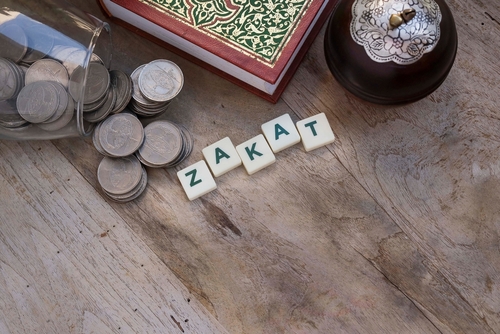Some Muslims may still not know that their assets are subject to zakat. These assets are not only paper money, but also jewelry, gold, investments, livestock, and even accounts receivable. Thistype of zakat is called zakat mal or zakat harta. So, what types of assets are required to be issued zakat?
Types of Zakat Mal/Zakat Harta
Zakat mal itself comes from the Arabic word ‘maal ‘ which means treasure or wealth (al-amwal, plural of the word;maal). According to the Lisan al-Arab dictionary, treasure or wealth here is everything that humans want to keep and own. Based on this definition, zakat mal can be interpreted as zakat imposed on all types of assets whose means of acquisition are not contrary to religious provisions. The wealth here can be in any form and type, such as banknotes, jewelry, investments, income from professions, agricultural products, and so on.
Read also: This is the Difference Between Zakat and Tax that You Must Know!

The following are the types of assets that are subject to zakaah according to Islam:
Zakat on Banknotes
The ruling on banknotes is the same as that of dinars and dirhams in terms of jurisprudence using the method of qiyas. Thus, all the rulings that apply to dinars and dirhams also apply to banknotes. Like dinars and dirhams, banknotes are subject to usury and are subject to zakaah.
Zakat on Jewelry
The scholars are unanimously agreed that pearls, gems, diamonds, yaqut, etc. are not subject to zakaah, unless they are used as trade goods.
Zakat on Gold and Silver
Gold and silver are subject to zakaah if they have reached the nisaab and are free of debts and basic needs, even if they are in the form of money. The nisab of gold and the rate at which zakaah is required is when it reaches twenty dinars (approximately Rp958,000). If the gold has reached twenty dinars and haul, then 2.5 percent zakat is obligatory.
Meanwhile, for silver, the nisab is when the value of silver has reached two hundred dirhams or approximately IDR 784.9 thousand. If it has reached this figure, then the zakat must be issued as much as 2.5 percent.
Read also: Types of Wealth that Must Be Issued Zakat

Zakat on Savings and Investments
Zakat on investment is the zakat imposed on the assets obtained from the investment. Investment here can mean many things, such as buildings, rented space, stocks, mutual funds and so on. This zakat is paid when the investment is earning, while the capital is not subject to zakat. Similar to zakat mal, investment zakat is paid when it reaches the nisab, which is the value equivalent to 85 grams of gold in one year, the zakat must be paid at 2.5 percent.
Zakat on Trade/Business
As the name implies, trade or commerce zakat is a zakat that is issued on assets obtained from buying and selling activities. This zakat is not only required on individuals, but also on associations such as CV, PT, Cooperative and so on. If the amount of trade assets has reached the value of 85 grams of gold in one year, then one is obliged to pay zakat as much as 2.5 percent of that value.
Zakat on Agricultural Products
The provision of agricultural zakat is when agricultural products have reached approximately 653 kilograms.
Read also: Empowering Local Farmers, Dompet Dhuafa Introduces a Greenhouse Endowment and Conducts Sterilization
Zakat on Livestock
In fiqh, there are only three types of livestock that are subject to zakaah: camels, cows and goats.
The conditions for the issuance of livestock zakat are reaching the nisab, haul, and grazing on permissible pastures.
Zakat on Masawin
Zakat on masawin is issued only when it has been legally received by the bride. The reason for this is that a dowry is a compensation for something other than wealth, so there is no obligation to pay zakat on it before it is received. Once it is received, the zakat must be paid provided that it has reached the nisab and haul. On the other hand, the opinion of the Shafi’i scholars is that a woman is obliged to pay zakaah on her dowry when it reaches the haul, even if there has been no sexual intercourse.
Read also: Paying Zakat on your income when you’re already paid, is it obligatory?
Zakat on Receivables
There are two types of receivables: those that are owed by someone who is willing to acknowledge and pay them (the view of ‘Ali, Tsauri, Abu Tsaur, Hanafis and Hanbalis); and those that are owed by someone who finds it difficult to pay them, denies them or delays paying them (the view of Qatadah, Ishaq, Abu Tsaur and Hanbalis).
For the first type of receivable, the owner of the receivable is obliged to pay zakaah when he receives the receivable. As for the second type of receivable, the owner of the receivable is not obliged to pay zakaah on the receivable because the receivable cannot be taken by him for utilization.
Zakat on Found Goods
Found items are items that have been unaccounted for for years and no one has claimed them. If this is the case, then the found goods must be paid zakat at 20 percent.



